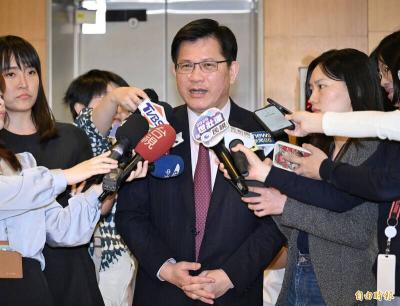Chinese Nationalist Party (KMT) Taipei City councilors yesterday urged the city government to draft regulations requiring retailers and Internet cafes to strictly follow the rating system in selling online games.
Showing the content of some of the most popular online games among teenagers, which contained violence, coarse language and bloody scenes, KMT Taipei City councilors Lee Yen-hsiu (李彥秀) and Chin Li-fang (秦儷舫) condemned the central and local governments for allowing teenagers to have easy access to online games, which are sold in convenience stores, supermarkets or Internet cafes.
“Many of these online games are rated restricted or have even been banned in other countries such as South Korea and Australia, but our kids can easily purchase these games. Are we living in anarchy in Taiwan?” Lee said at Taipei City Council.
Chin said the legislature is expected to pass an amendment to the Children and Welfare Act (兒童及少年福利法) in October regulating both online and single-player video game ratings and banning computer associations and Internet cafes from selling restricted games to youngsters.
“The amendment would require Internet cafes and shops that sell computer software to stop selling restricted online games to teenagers, but it does not stipulate any fine for businesses that refuse to cooperate. This is a passive regulation,” she said.
Chen Kuan-lu (陳光陸), head of the Taipei Municipal Elementary School Parents Association, voiced concern over what he called the city government's failure to regulate Internet cafes and video game retailers, saying that it had exposed children to violence and sex through video games.
A survey conducted by the Child Welfare League Foundation showed that teenagers playing video games increased from 62 percent in 2006 to 88 percent this year.
More than 10 percent of teenagers said they stayed up late to play video games.

Taiwan would welcome the return of Honduras as a diplomatic ally if its next president decides to make such a move, Minister of Foreign Affairs Lin Chia-lung (林佳龍) said yesterday. “Of course, we would welcome Honduras if they want to restore diplomatic ties with Taiwan after their elections,” Lin said at a meeting of the legislature’s Foreign Affairs and National Defense Committee, when asked to comment on statements made by two of the three Honduran presidential candidates during the presidential campaign in the Central American country. Taiwan is paying close attention to the region as a whole in the wake of a

Chinese Nationalist Party (KMT) Chairman Eric Chu (朱立倫), spokeswoman Yang Chih-yu (楊智伃) and Legislator Hsieh Lung-chieh (謝龍介) would be summoned by police for questioning for leading an illegal assembly on Thursday evening last week, Minister of the Interior Liu Shyh-fang (劉世芳) said today. The three KMT officials led an assembly outside the Taipei City Prosecutors’ Office, a restricted area where public assembly is not allowed, protesting the questioning of several KMT staff and searches of KMT headquarters and offices in a recall petition forgery case. Chu, Yang and Hsieh are all suspected of contravening the Assembly and Parade Act (集會遊行法) by holding

President William Lai (賴清德) has appointed former vice president Chen Chien-jen (陳建仁) to attend the late Pope Francis’ funeral at the Vatican City on Saturday on his behalf, the Ministry of Foreign Affairs said today. The Holy See announced Francis’ funeral would take place on Saturday at 10am in St Peter’s Square. The ministry expressed condolences over Francis’ passing and said that Chen would represent Taiwan at the funeral and offer condolences in person. Taiwan and the Vatican have a long-standing and close diplomatic relationship, the ministry said. Both sides agreed to have Chen represent Taiwan at the funeral, given his Catholic identity and

Taiwan would welcome the return of Honduras as a diplomatic ally if the next president of that country decides to make such a move, Minister of Foreign Affairs Lin Chia-lung (林佳龍) said today. “We would welcome Honduras if they want to restore diplomatic ties with Taiwan after their elections,” Lin said during a legislative hearing. At the same time, Taiwan is paying close attention to the Central American region as a whole, in the wake of a visit there earlier this year by US Secretary of State Marco Rubio, Lin said. Rubio visited Panama, El Salvador, Costa Rica and Guatemala, during which he